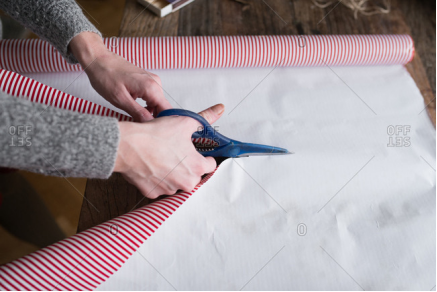We Asked a Financial Adviser: Should You Break the Bank on Big Purchases, or Hold Out?
Say what you will about sitting inside the house alone: It’s inexpensive.
Two years of little spending and great boredom have left many Oregonians atop a pandemic nest egg. Combine those savings with cabin fever, and now feels like the moment to drop that money into something life-changing.
Of course, you already know the catch. Nothing is affordable.
If inflation means everyday shopping is painful, it’s also moved the goalposts on big buys. Houses, cars, vacations: They’re all prohibitively costly, just at the moment they feel most meaningful.
So it goes: Desire is suffering. But a lot of us could use advice on how to budget for the bank-breaking purchases we can’t let go. So WW consulted Ann Garcia, a certified financial planner with Independent Progressive Advisors in Cedar Hills. We asked for her counsel on five big-ticket items, and she told us whether she’d buy now or hold out for prices to drop.
HOUSE
Verdict: Wait.Home shopping in Portland is a lose-lose scenario. On the one hand, interest rates are rising. That tends to correlate with prices dropping, and lower mortgage payments. Which means you should exercise patience—except that Portland’s grotesquely tight housing crunch shows no signs of being eased by new supply. Garcia’s advice is simple enough to embroider on a towel: Don’t panic. “It’s easy to get caught up in the market: ‘Oh my gosh, if I don’t get in now, I never will,’” she says. “But the way that you lose in real estate is by transacting frequently. Buy the house you want. And if doing that lets you stay in a house seven years rather than two, you’re better off seven years down the road.”

CAR
Verdict: Wait.This one is easier. Inflation of vehicle prices is tied directly to supply shortages—and unlike the housing market, the supply of Subarus can self-correct fairly quickly. In the meantime, dealers have you where they want you. “The dealer markups are way up,” Garcia says, “because they know they can charge whatever they want.” What once was a $1,500 markup is now $7,000. “That’s not money you wanna spend,” Garcia adds, “because you’re not getting anything better for the extra money.” Lately, she’s been advising clients to consider leasing—at least until more Toyotas start landing at the Port of Portland shipyards.
COLLEGE
Verdict: Buy local.Waiting a couple more years for a house or car is palatable. But delaying an education? “Your 18-year-old is 18, and they’re expecting to go this year,” Garcia concedes. That probably means tossing out the acceptance letter from Stanford and looking at in-state tuition offers. “Not every kid needs to go to an $80,000-a-year private school,” she says. “Our in-state public schools are very generous with good students.” In other words: Consider Portland State. And don’t forget that Oregon now offers free community college through a program called Oregon Promise—dual enrollment for the first two years could be the affordable route to a four-year degree.
COUCH OR DECK
Verdict: Wait.A recent visit to City Liquidators confirms: Inflation has hit furniture hard. Lumber’s even worse. Supply-chain gaps have made the home improvement projects that passed the pandemic months a luxury now. Garcia notes another factor: “You’ve got worker shortages, and a lot of furniture is actually produced in this country.” Until the labor market settles out, Wayfair has to pay a premium for loveseat assembly, and it’ll pass the cost of wages on to you. Brush the cat hair off the ottoman and wait it out.
VACATION
Verdict: Spend creatively.Garcia offered her advice in a Zoom call from Palm Springs, Calif.—where she’s spending March in a winter vacation house rental. Envy her if you wish, but the lesson is that remote work means people who can afford it are gobbling woodland cabins and beachfront cottages. Supply didn’t grow—but demand did. Worse: Airfare is astronomical. The typical advice in these circumstances is a staycation. But Garcia’s not sure that’s a panacea, given Oregon’s recent history and drought conditions: “The challenge of staying local is, what’s fire season going to look like this summer?” She recommends staying flexible. A vacation is still affordable, so long as you look for the places people aren’t flocking. “The people who come out of this worst are the ones who are like, ‘I am going to do X, Y and Z.’ If you’re willing to say, instead, ‘Our family vacation budget is X—let’s figure out what we can do for that money,’ chances are you’ll come up with a lot of good, good options.”
See More of A Portlander’s Guide to Surviving Inflation Here!







